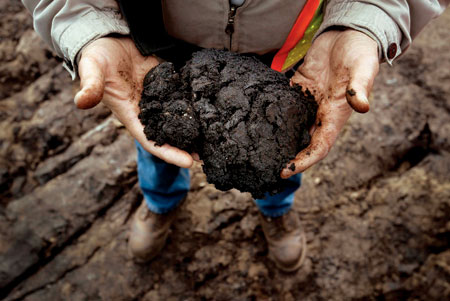Canada has threatened to scrap a trade deal with the European Union if the EU persists with plans that would block imports of Canada's highly polluting tar sands, according to EU documents and sources. The European Union has told its fuel suppliers to reduce the carbon footprint of fuels by 6 percent over the next decade, and is now fine-tuning "default values"" to help suppliers identify the most carbon-intensive imports.
Canada says the standards would instantly constrict a possible future market for its oil sands -- tar-like oil that is trapped in sediment and forms the world's second-largest proven crude reserves after those of Saudi Arabia.
"Canada has been lobbying the Commission and member states intensively to avoid a separate default value for fuel derived from tar sands," said a briefing note prepared by EU officials for climate commissioner Connie Hedegaard.
"It has raised the issue in the context of EU-Canada negotiations on a Free Trade Agreement," adds the note, one of several from last year released last week under freedom-of-information laws. Sources said Monday that Canada had gone further, threatening to void the free trade deal, which is expected to be agreed later this year.
"Canada and the European Union are working to resolve the issue outside of the negotiations toward a free trade deal," International Trade Minister Peter Van Loan said in a statement to Reuters.
Canada has challenged the EU at the World Trade Organization in various disputes, such as over hormone-treated beef, genetically modified foods and seal products.
A trade deal would open up Canadian public works contracts to European bidders and allow Canada to capture sales -- from auto parts and insurance to beef and grain -- currently dominated by the United States and Asia.







